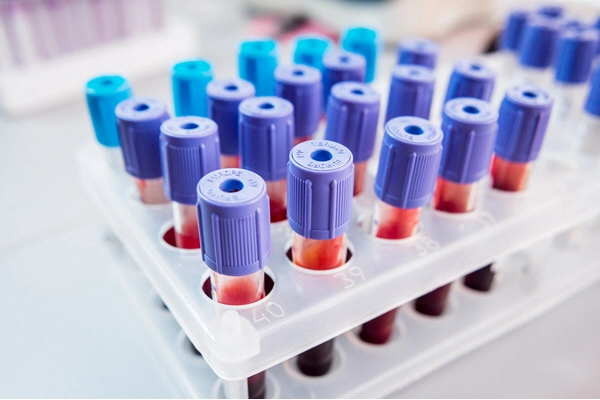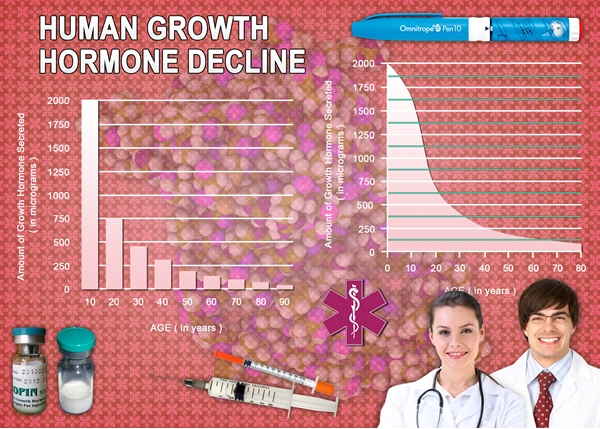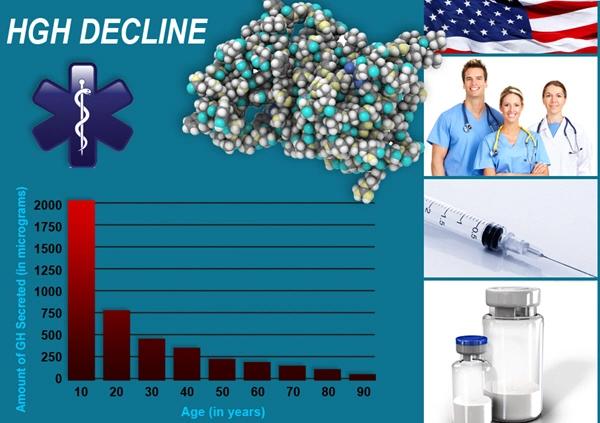Introduction
Primary hypogonadism, a condition characterized by the failure of the testes to produce adequate levels of testosterone and sperm, has been increasingly recognized as a significant health concern among American males. Recent studies suggest that psychological factors, such as stress and mental health issues, may play a crucial role in the development of this condition. This article delves into the findings of a prospective cohort study that explores the intricate relationship between stress, mental health, and the onset of primary hypogonadism in American men.
Study Design and Methodology
The study followed a cohort of 1,500 American males aged 25-50 over a period of five years. Participants were selected from diverse socioeconomic backgrounds to ensure a representative sample. At the outset, baseline measurements of testosterone levels, psychological stress, and mental health status were recorded. Stress was assessed using the Perceived Stress Scale (PSS), while mental health was evaluated using the Patient Health Questionnaire-9 (PHQ-9) for depression and the Generalized Anxiety Disorder-7 (GAD-7) for anxiety. Follow-up assessments were conducted annually to monitor changes in testosterone levels and psychological parameters.
Findings: Stress and Primary Hypogonadism
The study revealed a significant association between high levels of perceived stress and the development of primary hypogonadism. Men who reported higher stress scores on the PSS at baseline were 2.5 times more likely to develop primary hypogonadism compared to those with lower stress scores. This association remained significant even after controlling for potential confounders such as age, BMI, and lifestyle factors. The data suggests that chronic stress may contribute to the dysfunction of the hypothalamic-pituitary-gonadal (HPG) axis, leading to reduced testosterone production.
Findings: Mental Health and Primary Hypogonadism
In addition to stress, the study found a strong link between mental health issues, particularly depression and anxiety, and the onset of primary hypogonadism. Participants with elevated PHQ-9 and GAD-7 scores at baseline were at a significantly higher risk of developing primary hypogonadism. Specifically, men with moderate to severe depression were 3.2 times more likely to develop the condition, while those with moderate to severe anxiety were 2.8 times more likely. These findings underscore the importance of addressing mental health as part of a comprehensive approach to managing and preventing primary hypogonadism.
Mechanisms: How Stress and Mental Health Affect Testosterone Production
The study proposes several mechanisms through which stress and mental health may influence testosterone production. Chronic stress can lead to elevated cortisol levels, which in turn can suppress the HPG axis and inhibit testosterone synthesis. Similarly, depression and anxiety may disrupt the normal functioning of the HPG axis through alterations in neurotransmitter systems, such as serotonin and dopamine, which play a role in regulating testosterone production. These insights highlight the need for a holistic understanding of the factors contributing to primary hypogonadism.
Implications for Clinical Practice
The findings of this study have significant implications for the clinical management of primary hypogonadism. Healthcare providers should consider screening for stress and mental health issues in men presenting with symptoms of low testosterone. Early intervention to address these psychological factors may help prevent the progression of primary hypogonadism and improve overall health outcomes. Moreover, the study emphasizes the importance of a multidisciplinary approach that integrates psychological support with traditional medical treatments for hypogonadism.
Conclusion
This prospective cohort study provides compelling evidence of the role of stress and mental health in the onset of primary hypogonadism among American males. By highlighting the significant associations between psychological factors and testosterone levels, the study calls for a more comprehensive approach to the diagnosis and management of this condition. Future research should focus on developing targeted interventions to mitigate the impact of stress and mental health on the HPG axis, ultimately improving the quality of life for men affected by primary hypogonadism.

- Primary Hypogonadism: Overcoming Stigma and Enhancing Men's Health in America [Last Updated On: February 22nd, 2025] [Originally Added On: February 22nd, 2025]
- Exercise Regimen Boosts Testosterone in American Males with Primary Hypogonadism [Last Updated On: March 17th, 2025] [Originally Added On: March 17th, 2025]
- Primary Hypogonadism in Aging American Men: Symptoms, Impacts, and Management Strategies [Last Updated On: March 17th, 2025] [Originally Added On: March 17th, 2025]
- Innovative Therapies and Lifestyle Interventions for Primary Hypogonadism in American Males [Last Updated On: March 19th, 2025] [Originally Added On: March 19th, 2025]
- Primary Hypogonadism: Symptoms, Diagnosis, and Treatment Options for American Men [Last Updated On: March 19th, 2025] [Originally Added On: March 19th, 2025]
- Primary Hypogonadism: Understanding, Managing, and Supporting Affected American Men [Last Updated On: March 19th, 2025] [Originally Added On: March 19th, 2025]
- Primary Hypogonadism: Impact on Work and Strategies for American Men's Productivity [Last Updated On: March 20th, 2025] [Originally Added On: March 20th, 2025]
- Emotional Journey of American Males with Primary Hypogonadism: From Diagnosis to Acceptance [Last Updated On: March 20th, 2025] [Originally Added On: March 20th, 2025]
- Managing Primary Hypogonadism: Diet, Nutrition, and Lifestyle Strategies for American Males [Last Updated On: March 20th, 2025] [Originally Added On: March 20th, 2025]
- Primary Hypogonadism and Obesity Link in American Males: Causes, Impacts, and Management [Last Updated On: March 21st, 2025] [Originally Added On: March 21st, 2025]
- Primary Hypogonadism in American Men: Support Networks and Psychological Impact [Last Updated On: March 21st, 2025] [Originally Added On: March 21st, 2025]
- Primary Hypogonadism and Diabetes: Dual Health Challenge for American Men [Last Updated On: March 22nd, 2025] [Originally Added On: March 22nd, 2025]
- Managing Primary Hypogonadism: Navigating Diagnosis, Treatment, and Support in the US [Last Updated On: March 22nd, 2025] [Originally Added On: March 22nd, 2025]
- Diagnosing Primary Hypogonadism in American Males: Challenges and Advances [Last Updated On: March 23rd, 2025] [Originally Added On: March 23rd, 2025]
- Managing Primary Hypogonadism: Symptoms, Diagnosis, and Treatment Options for American Men [Last Updated On: March 23rd, 2025] [Originally Added On: March 23rd, 2025]
- Managing Primary Hypogonadism: Education and Treatment for American Males [Last Updated On: March 23rd, 2025] [Originally Added On: March 23rd, 2025]
- Primary Hypogonadism: Understanding Emotional Impact and Holistic Management Strategies [Last Updated On: March 23rd, 2025] [Originally Added On: March 23rd, 2025]
- Primary Hypogonadism's Impact on Muscle Mass in American Males: Causes and Therapies [Last Updated On: March 24th, 2025] [Originally Added On: March 24th, 2025]
- American Males' Resilience in Managing Primary Hypogonadism: Stories and Strategies [Last Updated On: March 24th, 2025] [Originally Added On: March 24th, 2025]
- Primary Hypogonadism: Mental Health's Crucial Role in Holistic Care for American Men [Last Updated On: March 24th, 2025] [Originally Added On: March 24th, 2025]
- Innovative Therapies and Personalized Approaches Transforming Primary Hypogonadism Treatment in American Males [Last Updated On: March 24th, 2025] [Originally Added On: March 24th, 2025]
- Community Support Enhances Management of Primary Hypogonadism in American Men [Last Updated On: March 25th, 2025] [Originally Added On: March 25th, 2025]
- Primary Hypogonadism in American Men: TRT's Role and Holistic Management [Last Updated On: March 25th, 2025] [Originally Added On: March 25th, 2025]
- Primary Hypogonadism in American Men: Symptoms, Causes, and Holistic Management [Last Updated On: March 25th, 2025] [Originally Added On: March 25th, 2025]
- Genetic Testing for Primary Hypogonadism: Diagnosis and Management in American Males [Last Updated On: March 25th, 2025] [Originally Added On: March 25th, 2025]
- Primary Hypogonadism's Impact on Sleep: Diagnosis, Treatment, and Lifestyle Management [Last Updated On: March 25th, 2025] [Originally Added On: March 25th, 2025]
- Managing Primary Hypogonadism: Symptoms, Diagnosis, and Healthcare Navigation in the US [Last Updated On: March 25th, 2025] [Originally Added On: March 25th, 2025]
- Primary Hypogonadism: Impact, Advocacy, and Research Needs for American Men [Last Updated On: March 25th, 2025] [Originally Added On: March 25th, 2025]
- Primary Hypogonadism: Impact on Body Image and Management Strategies for American Men [Last Updated On: March 25th, 2025] [Originally Added On: March 25th, 2025]
- Primary Hypogonadism: Family Support's Crucial Role in American Males' Well-being [Last Updated On: March 25th, 2025] [Originally Added On: March 25th, 2025]
- Primary Hypogonadism: Causes, Symptoms, and Early Intervention for American Men [Last Updated On: March 25th, 2025] [Originally Added On: March 25th, 2025]
- Primary Hypogonadism Management: Importance of Regular Check-ups for American Males [Last Updated On: March 25th, 2025] [Originally Added On: March 25th, 2025]
- Financial Burdens of Primary Hypogonadism: Costs, Insurance, and Coping Strategies for American Men [Last Updated On: March 25th, 2025] [Originally Added On: March 25th, 2025]
- Primary Hypogonadism in American Males: Diagnosis, Treatment, and Management Strategies [Last Updated On: March 25th, 2025] [Originally Added On: March 25th, 2025]
- Primary Hypogonadism: Causes, Symptoms, and Treatment in American Men [Last Updated On: March 26th, 2025] [Originally Added On: March 26th, 2025]
- Primary Hypogonadism: Diagnosis, Specialists, and Management for American Men [Last Updated On: March 26th, 2025] [Originally Added On: March 26th, 2025]
- Primary Hypogonadism: Impacts on American Men's Social Life and Health [Last Updated On: March 26th, 2025] [Originally Added On: March 26th, 2025]
- Primary Hypogonadism in American Men: Diagnosis, Impact, and Management Strategies [Last Updated On: March 27th, 2025] [Originally Added On: March 27th, 2025]
- Nutritionists' Vital Role in Managing Primary Hypogonadism in American Males [Last Updated On: March 27th, 2025] [Originally Added On: March 27th, 2025]
- Exercise Physiologists' Role in Managing Primary Hypogonadism in American Males [Last Updated On: March 27th, 2025] [Originally Added On: March 27th, 2025]
- Understanding Primary Hypogonadism: Symptoms, Diagnosis, and Treatment Options [Last Updated On: March 27th, 2025] [Originally Added On: March 27th, 2025]
- Primary Hypogonadism: Impacts, Diagnosis, and Management in American Males [Last Updated On: March 27th, 2025] [Originally Added On: March 27th, 2025]
- Primary Hypogonadism: Impacts and Strategies for Career Success in American Males [Last Updated On: March 27th, 2025] [Originally Added On: March 27th, 2025]
- Primary Hypogonadism's Impact on Physical Activity in American Males: Challenges and Strategies [Last Updated On: March 27th, 2025] [Originally Added On: March 27th, 2025]
- Primary Hypogonadism in American Men: The Vital Role of Peer Support [Last Updated On: March 27th, 2025] [Originally Added On: March 27th, 2025]
- Primary Hypogonadism: Variability in Symptoms and Impact on American Men's Health [Last Updated On: March 28th, 2025] [Originally Added On: March 28th, 2025]
- Primary Hypogonadism in American Men: Diagnosis, Treatment, and Management Strategies [Last Updated On: March 28th, 2025] [Originally Added On: March 28th, 2025]
- Primary Hypogonadism's Impact on Self-Esteem in American Males: A Holistic Approach [Last Updated On: March 29th, 2025] [Originally Added On: March 29th, 2025]
- Primary Hypogonadism: Understanding Treatments and Managing Side Effects in American Males [Last Updated On: March 29th, 2025] [Originally Added On: March 29th, 2025]
- Primary Hypogonadism: Addressing Emotional Challenges in American Men [Last Updated On: March 30th, 2025] [Originally Added On: March 30th, 2025]
- Primary Hypogonadism: Impact, Monitoring, and Management Strategies for American Men [Last Updated On: March 30th, 2025] [Originally Added On: March 30th, 2025]
- Primary Hypogonadism: Impacts and Options for Family Planning in American Males [Last Updated On: April 1st, 2025] [Originally Added On: April 1st, 2025]
- Primary Hypogonadism: Managing Stress and Anxiety in American Men [Last Updated On: April 2nd, 2025] [Originally Added On: April 2nd, 2025]
- Primary Hypogonadism in American Men: Diagnosis, Treatment, and Lifestyle Management [Last Updated On: April 4th, 2025] [Originally Added On: April 4th, 2025]
- Overcoming Psychological Barriers to Treating Primary Hypogonadism in American Men [Last Updated On: April 4th, 2025] [Originally Added On: April 4th, 2025]
- Endocrinologists' Vital Role in Managing Primary Hypogonadism in American Males [Last Updated On: April 5th, 2025] [Originally Added On: April 5th, 2025]
- Managing Primary Hypogonadism: Financial Strategies and Support Options for American Men [Last Updated On: April 6th, 2025] [Originally Added On: April 6th, 2025]
- Revolutionizing Primary Hypogonadism Management with Wearable Tech and Telemedicine in American Men [Last Updated On: April 7th, 2025] [Originally Added On: April 7th, 2025]
- Managing Primary Hypogonadism: Diagnosis, Treatment, and Lifestyle Strategies for American Men [Last Updated On: April 8th, 2025] [Originally Added On: April 8th, 2025]
- Primary Hypogonadism: Impacts on Social Life and Relationships in American Males [Last Updated On: April 8th, 2025] [Originally Added On: April 8th, 2025]
- Primary Hypogonadism: Impacts on Health, Psychology, and Daily Life in American Males [Last Updated On: April 9th, 2025] [Originally Added On: April 9th, 2025]
- Primary Hypogonadism: Challenges and Strategies for Treatment Adherence in American Males [Last Updated On: April 9th, 2025] [Originally Added On: April 9th, 2025]
- Primary Hypogonadism: Educating American Males on Symptoms, Treatment, and Lifestyle Management [Last Updated On: April 10th, 2025] [Originally Added On: April 10th, 2025]
- Support Groups: Vital for Managing Primary Hypogonadism in American Males [Last Updated On: April 10th, 2025] [Originally Added On: April 10th, 2025]
- Primary Hypogonadism: A Multidisciplinary Approach for American Men's Health [Last Updated On: April 10th, 2025] [Originally Added On: April 10th, 2025]
- Managing Primary Hypogonadism: Diagnosis, Treatment, and Maintaining a Positive Outlook for American Men [Last Updated On: April 11th, 2025] [Originally Added On: April 11th, 2025]
- Mental Health Apps: A New Hope for American Males with Primary Hypogonadism [Last Updated On: April 12th, 2025] [Originally Added On: April 12th, 2025]
- Primary Hypogonadism: Understanding, Treatments, and Future Hope for American Men [Last Updated On: April 14th, 2025] [Originally Added On: April 14th, 2025]
- Managing Primary Hypogonadism: Importance of Regular Follow-ups for American Men [Last Updated On: April 15th, 2025] [Originally Added On: April 15th, 2025]
- Primary Hypogonadism Management: Multidisciplinary Team Approach for American Men [Last Updated On: April 15th, 2025] [Originally Added On: April 15th, 2025]
- Primary Hypogonadism: Navigating Workplace Challenges and Advocacy for American Men [Last Updated On: April 16th, 2025] [Originally Added On: April 16th, 2025]
- Physical Therapy's Role in Managing Primary Hypogonadism in American Males [Last Updated On: April 18th, 2025] [Originally Added On: April 18th, 2025]
- Dietitians' Role in Managing Primary Hypogonadism Through Tailored Nutrition Plans [Last Updated On: April 18th, 2025] [Originally Added On: April 18th, 2025]
- Primary Hypogonadism: Navigating Travel Challenges for American Males [Last Updated On: April 18th, 2025] [Originally Added On: April 18th, 2025]
- Primary Hypogonadism's Impact on Cognitive Function and Academic Success in American Males [Last Updated On: April 18th, 2025] [Originally Added On: April 18th, 2025]
- Preparing for Primary Hypogonadism Diagnosis: A Guide for American Men [Last Updated On: April 19th, 2025] [Originally Added On: April 19th, 2025]
- Primary Hypogonadism's Impact on American Men's Hobbies and Social Life [Last Updated On: April 19th, 2025] [Originally Added On: April 19th, 2025]
- Primary Hypogonadism in American Men: Diagnosis, Treatment, and Lifestyle Impact [Last Updated On: April 19th, 2025] [Originally Added On: April 19th, 2025]
- Five-Year Study Confirms Efficacy and Safety of HRT for Primary Hypogonadism in American Men [Last Updated On: April 22nd, 2025] [Originally Added On: April 22nd, 2025]
- Managing Primary Hypogonadism: Exercise Benefits for American Men's Health [Last Updated On: April 22nd, 2025] [Originally Added On: April 22nd, 2025]



List of USA state clinics - click a flag below for blood testing clinics.
Word Count: 614


















































